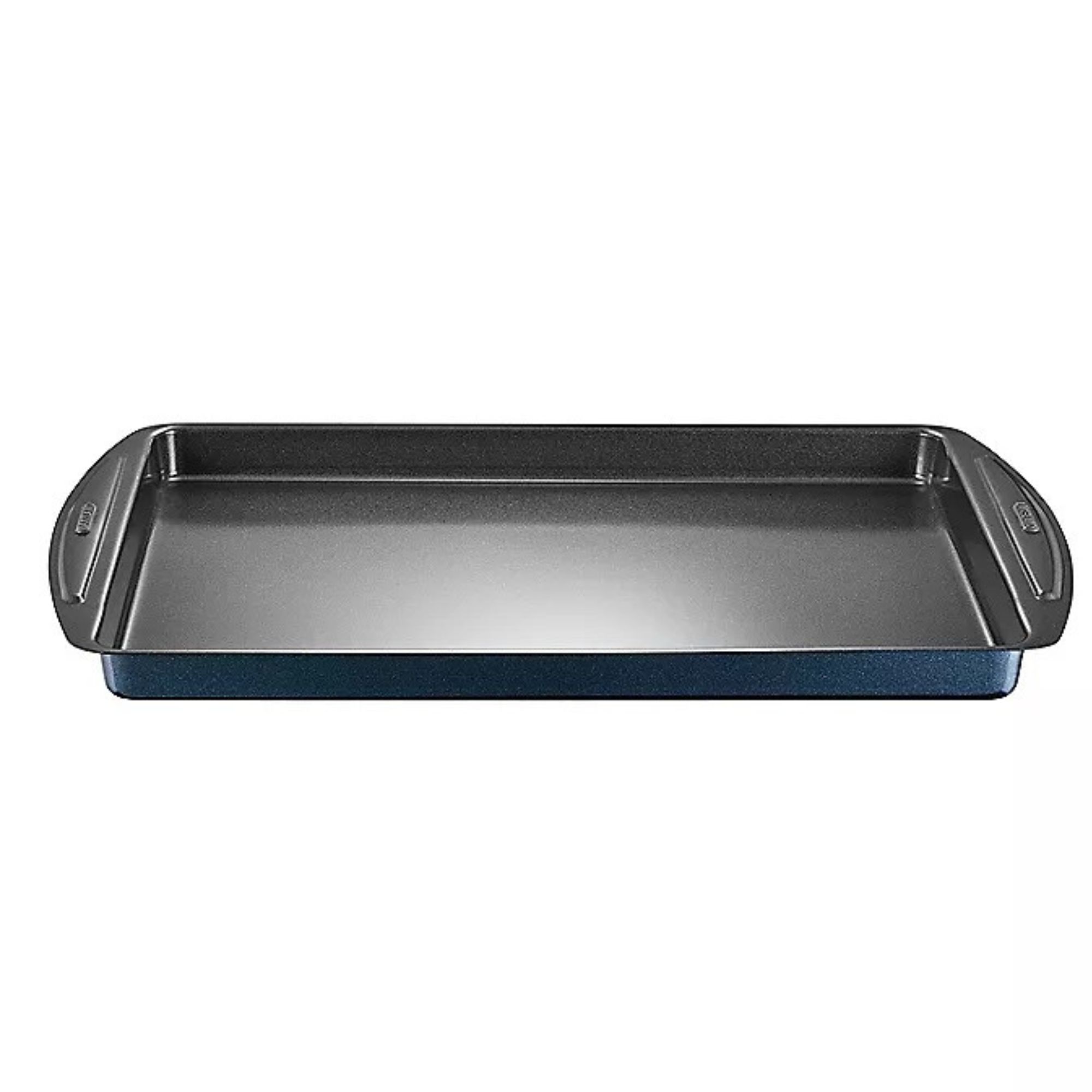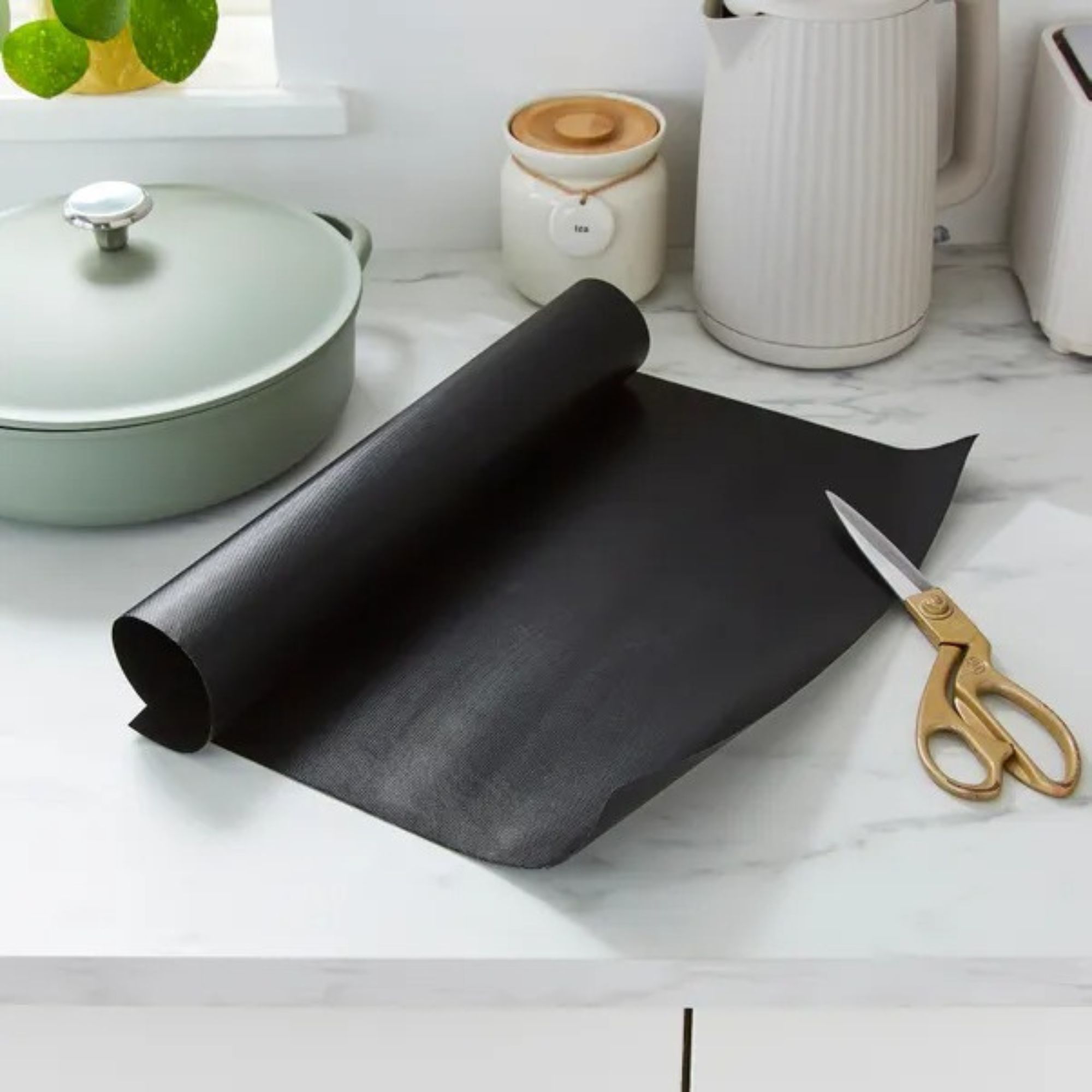How often should you clean your oven? Cleaning experts share their recommendations
Professionals advise how often you should clean your oven, and it's more than you might think...
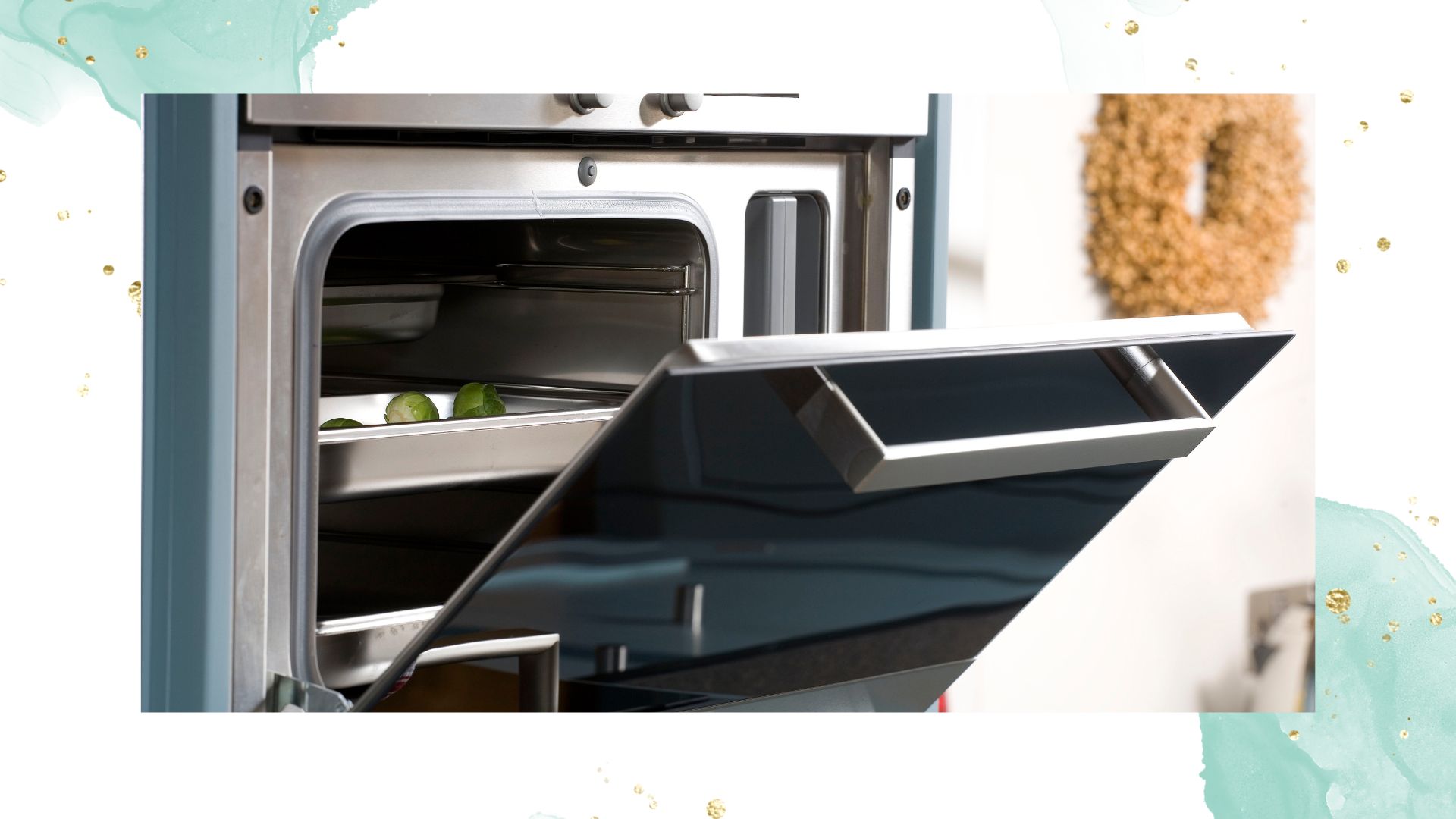

Emily Smith
Ovens are a hotspot for grease, grime, food residue and spillages - so how often should you clean your oven to get the best results from this everyday appliance?
While most homeowners will be well aware of how to clean an oven, knowing exactly how regularly you should be doing it may still feel a bit more of a mystery. Especially when you've got one of the best air fryers that requires cleaning after each use.
Similar to knowing how often you should clean your home, the exact frequency will naturally depend on how often you use it and the size of your household. However, with this expert advice and quick tips to keep your appliance clean while cooking, you'll be well on your way.
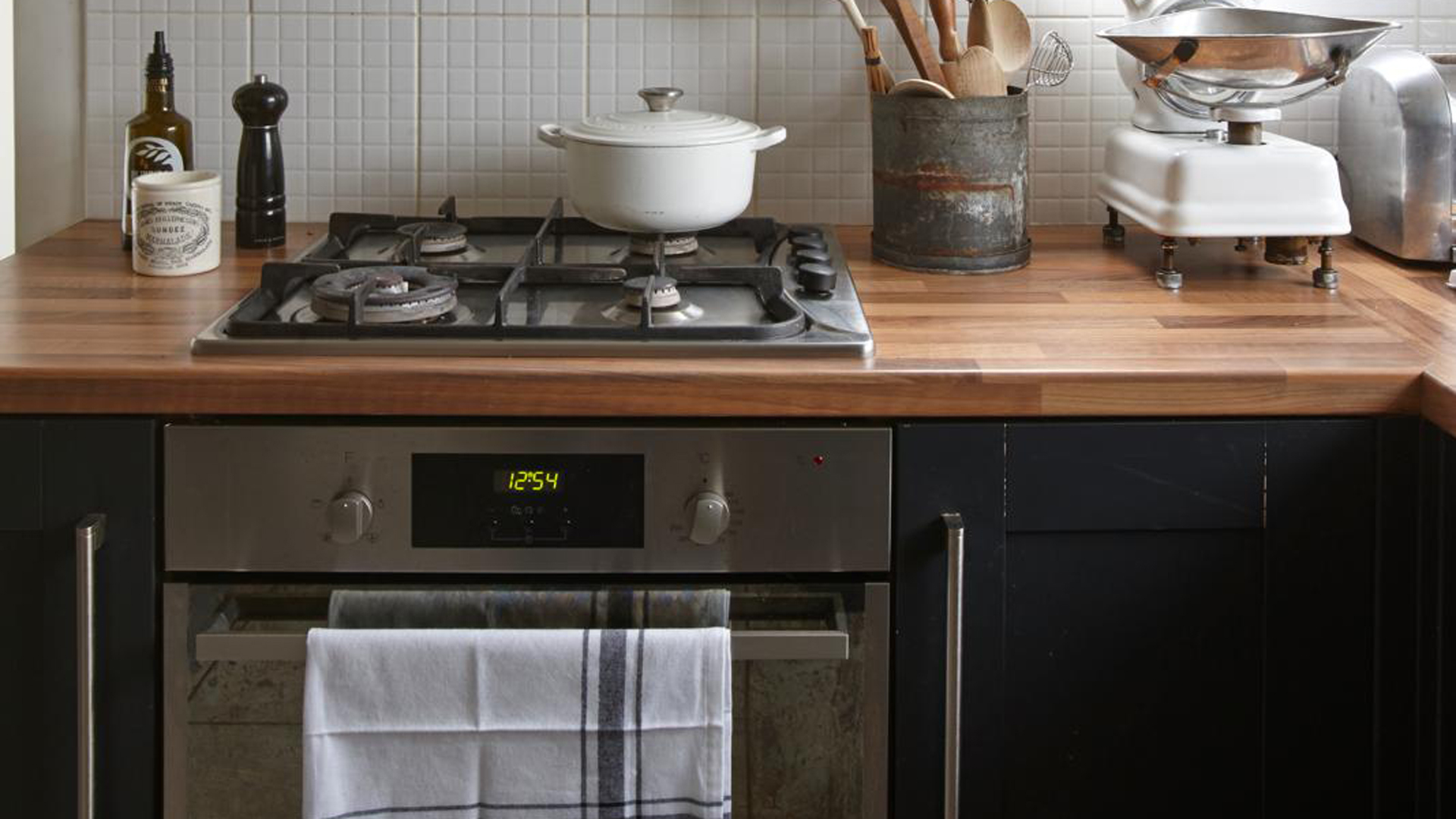
How often should you clean your oven?
As with the question of how often you should vacuum or clean your bathroom, there is no definite right answer because it will depend on your frequency of use, and what you're cooking. However, the experts we spoke to all agreed that undertaking a light clean after each use is the best way to avoid an accumulation of grime and grease.
In addition to light, regular cleans, the consensus from our panel of experts was that you should complete a deep clean of your oven every month.
Queen of Clean Lynsey Crombie, cleaning expert, TV presenter, and author, tells us, "I advise wiping over with a warm soapy cloth after every use and then doing a deep clean with the shelves once a month."
"Cleaning the oven is a job that most people put off for months, but that’s the problem," adds Ivan Ivanov, cleaning expert at End of Tenancy Cleaning. "Leaving long gaps between your oven cleaning will make the job much harder and tedious. Therefore, the key is to clean your oven a little and often." Because, as with tackling how to get stains out of a carpet, the longer you leave it, the harder the task becomes.
Sign up to our free daily email for the latest royal and entertainment news, interesting opinion, expert advice on styling and beauty trends, and no-nonsense guides to the health and wellness questions you want answered.
"If you have cooked something that has caused a mess in your oven, it’s a good idea to wipe down the appliance immediately once it has cooled," states Ivan, adding that a deep clean should be completed once a month.

Lynsey is the UK’s leading home expert, specialising in all things related to cleaning, organising, and home management. She is the author of Queen of Clean 15-Minute Clean: The Quickest Way To A Sparkling Home. A familiar face on popular shows like This Morning and Good Morning Britain, Lynsey is a go-to resident cleaning expert.

”If you do a lot of roasting or cooking fatty foods you may need to clean more regularly. Spilled foods should be wiped out after every use," explains Sophie Lane, product training manager at Miele. "Do this once the oven has cooled sufficiently to be safe but is still slightly warm as to make cleaning easier.”
“It’s important not to wait too long to clean oven racks, as repeated baking on of grease and food residue makes it harder to remove over time, so wipe up spillages as soon as the appliance has cooled sufficiently so you can safely do so.”
“It’s always best to try and keep your oven cavity as clean as possible and wipe it after each use to prevent the oven cavity and cooking surfaces from becoming heavily soiled and more difficult to clean," says Alexandra Dibble, home economist for Rangemaster. "We recommend wiping up any spillages immediately to prevent them from burning onto the surface – but be careful if the cooker is hot."
Alexandra advises deep cleaning on a less regular basis than other experts, however. "If your oven has a build-up of grease or cooking residues, we suggest performing a thorough deep clean every three months to keep it looking its best," she advises.
Cleaning your oven doesn’t need to be a difficult task, some models have side panels with coatings that are designed to clean themselves at high temperatures, or dedicated pyrolytic cleaning functions," states Alexandra. "However, most ovens can be cleaned with hot soapy water, or any proprietary oven cleaner that is suitable for enamel, and a chrome cleaner for the shelves and grill racks.”
How to keep your oven cleaner: 5 expert tips
"If you really dislike cleaning your oven, there are some simple actions you can take to ensure your oven stays cleaner for longer," advises Ivan.
Here are the best practices to follow when using your appliance to maintain a level of cleanliness between your chosen kitchen cleaning routines.
1. Keep dishes covered at all times
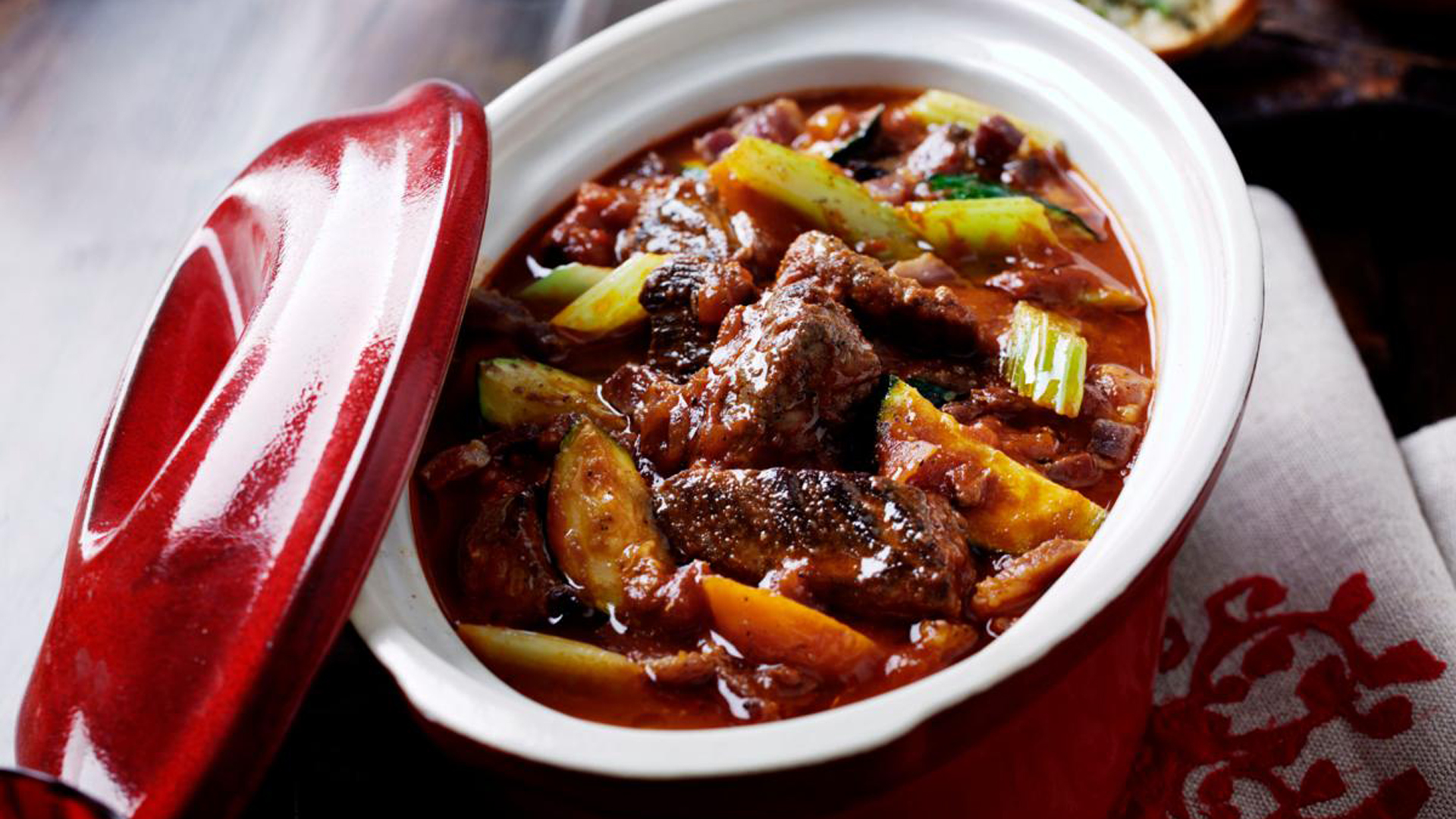
Avoid making unnecessary messes through spills and splashes from a bubbling pot by simply covering the contents. "Cover all slow-cooking food with a lid or foil," suggests Ivan. This simple act will ensure no food will leak onto the oven surfaces.
Keeping the lids on is also a great way to reduce humidity in the home.
2. Use oven trays to catch spills
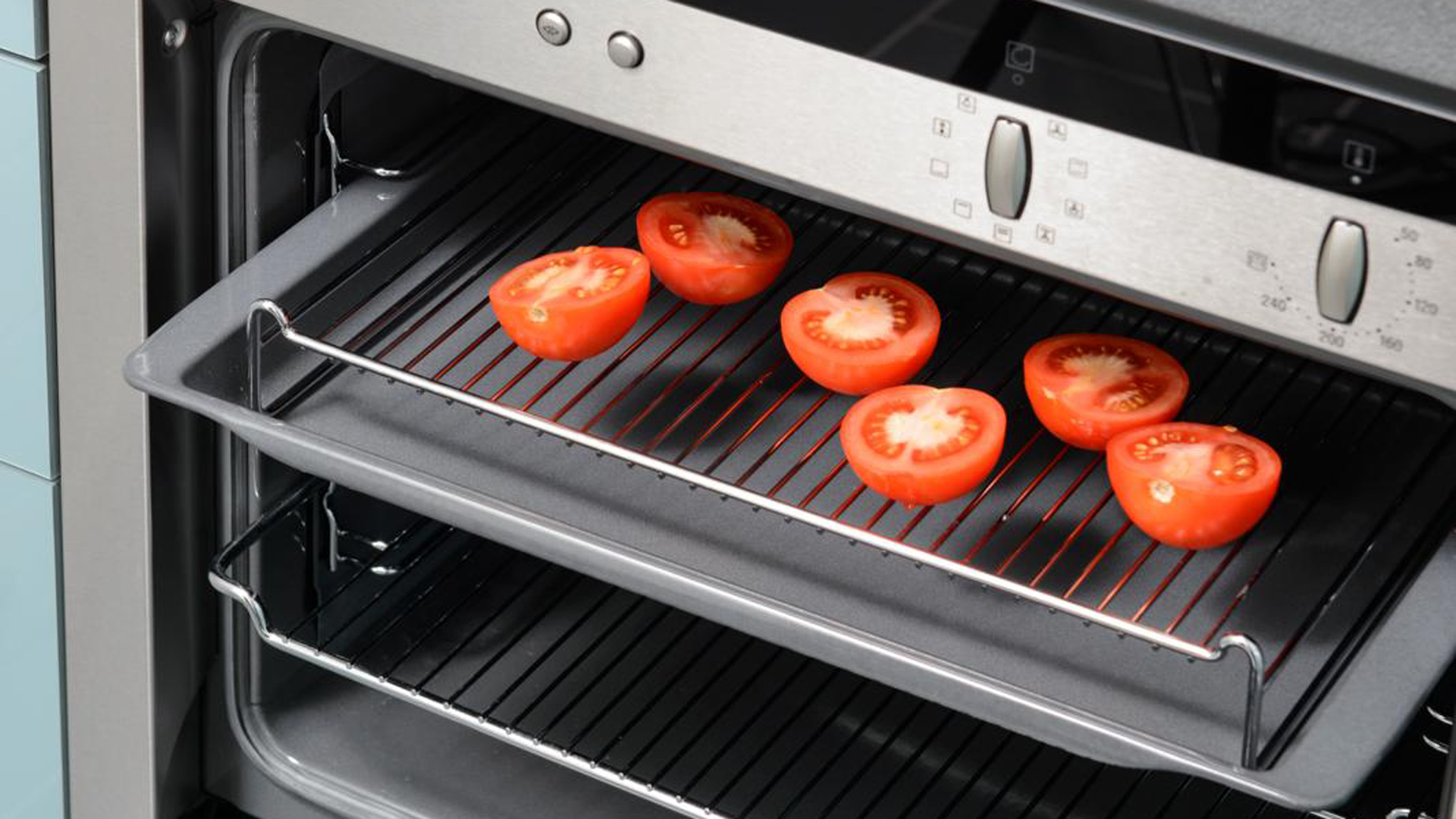
Place oven trays underneath your pots and dishes to create a protective barrier that will catch any potential food drops. "Place dishes on a baking tray to avoid food dripping into the oven," suggests Ivan. The simple act will catch any stray food or sauce remnants - and cleaning oven trays is a far easier and quicker task than cleaning the oven itself.
3. Clean the door with a glass scraper
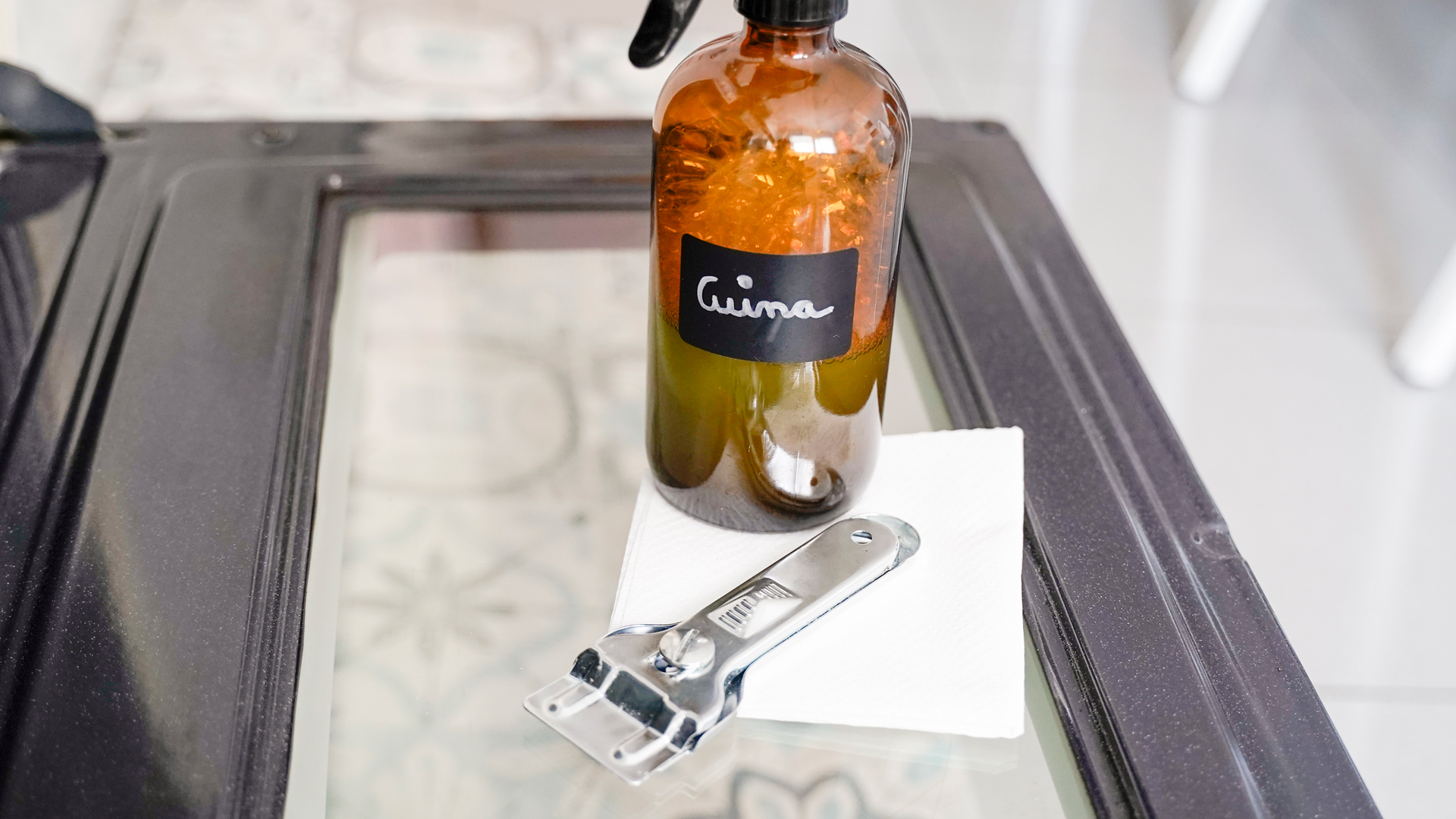
"One way to make an instant difference to the appearance of your oven is by cleaning the glass on your oven door after each use," advises Ivan. "It often gets grimy from cooking, preventing you from seeing what’s going on inside and whether your food is cooking as it should."
Keep your oven door clear of cooked-on food traces by using a glass scraper after each use. "Use a glass scraper, sponge, or clean microfibre cloth to remove any foods," Ivan suggests. "It’s important not to use harsh scourers as they may create minuscule scratches on the glass - doing this may weaken it and, over time, make it vulnerable to smashing."
4. Use oven liners
Similar to the oven tray trick, using oven liners is a great way to catch any spills. They work in the same way the air fryer accessory liners do, helping keep mess to a minimum.
“If you want to protect the inside of your oven, you can quickly get oven liners or an oven mat made of fibreglass in every home improvement store or on Amazon," explains Yordan Yordanov, an expert at professional cleaning company Fantastic Services. "They provide better heat resistance and protection, and therefore less cleaning."
Opt for liners that are built for the purpose, rather than aluminium foil. "Many people use aluminium foil, which is not a good solution because the material aluminium foil reflects and blocks heat in gas and electric ovens," warns Yordan.
5. Steam clean with a bowl of water
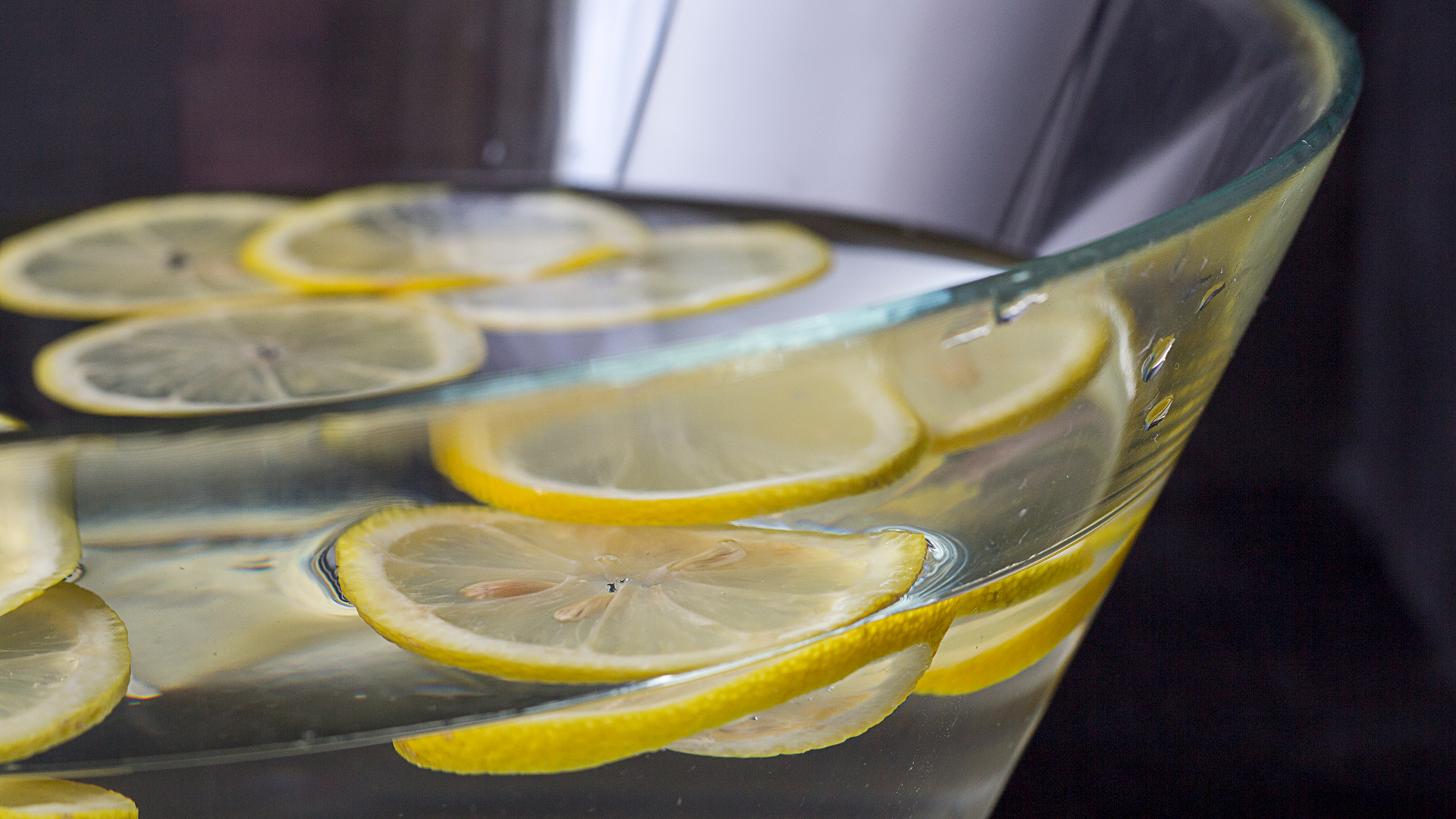
Strike while the oven's hot, so to speak. Carrying out a gentle steam clean while the oven cools prevents any potential lingering mess.
"Grease and food marks are easier to remove when the oven is still warm – but not too hot, of course," explains Heather Nixon, who works in new product development at green cleaning company Bio-D.
“A great natural way to clean your oven after every use is to fill an oven-proof pot with warm water and shut the door, to steam and loosen the dirt. Leave it to cool for 10 minutes or so before wiping away any trace of dirt and grime.” Even better, if you add a few slices of lemon, it will deodorise the oven, eradicating smells in between cooking.
Cleaning with lemons like this helps to keep on top of any potential grease and grime every time you use your appliance.
This simple trick helps to keep on top of any potential grease and grime every time you use your appliance. The same method is ideal for cleaning a microwave with ease.
FAQs
How to ventilate an oven after cleaning?
Whether you're cleaning your oven with specialised oven cleaner or have opted for the natural route and cleaned with baking soda, you'll want to air it out afterwards.
"It is important to ventilate your oven after cleaning to remove any lingering chemical odours," starts Sarah Dempsey, cleaning expert at MyJobQuote.
"Open the windows in your kitchen and turn on any exhaust fans to improve ventilation before turning on your oven’s ventilation system. It is then a good idea to run your oven at a low temperature for a short period before cooking in it again, which can burn off any residual smells," she continues.

With over twenty-five years in the cleaning industry, Sarah is truly an expert in what she does. Specialising in domestic cleaning and laundry, Sarah also works closely with MyJobQuote to provide expertise in cleaning to homeowners, tradespeople and media outlets.
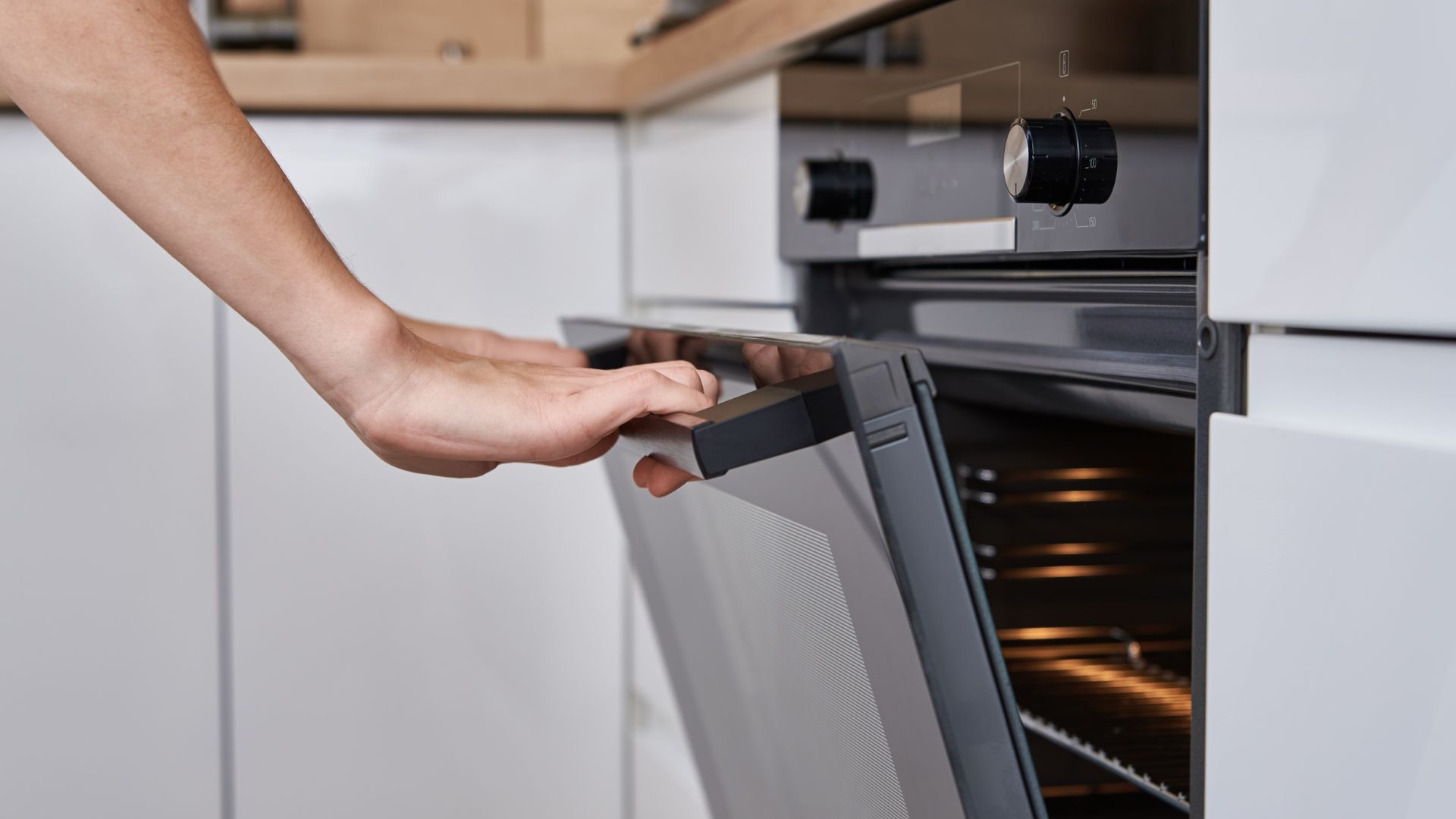
Are oven liners safe to use?
In the same way, you might be hesitant to use aluminium foil in an air fryer, oven liners can be known to be a little temperamental.
"Oven liners can be a handy tool as they can reduce cleaning time and are a more environmentally friendly option than disposable aluminium foil. Generally, they are safe to use as long as they are used properly, as they are designed to withstand high temperatures," explains Sarah.
"It is usually best practice to place the liners on the bottom rack rather than directly on the oven floor for optimal safety and performance," she adds.
If you're looking for a low-maintenance alternative, then there are always self-cleaning ovens. However, there are a few things to know before buying one, as they can take a little longer to do the job.

Tamara is a highly experienced homes and interiors journalist with a career spanning over 22 years. Now the Lifestyle Editor of womanandhome.com, she previously spent 18 years working with the style teams at Country Homes & Interiors and Ideal Home. With these award-winning interior teams, she gained a wealth of knowledge and honed her skills and passion for styling and writing about every aspect of lifestyle and interiors.
A true homes and interiors expert, Tamara has been an ambassador for leading interior brands on multiple occasions, including appearing on Matalan’s The Show and presenting at top interior trend forecasting events such as the Autumn Fair and Spring Fair.
- Emily SmithDigital lifestyle writer
You must confirm your public display name before commenting
Please logout and then login again, you will then be prompted to enter your display name.
